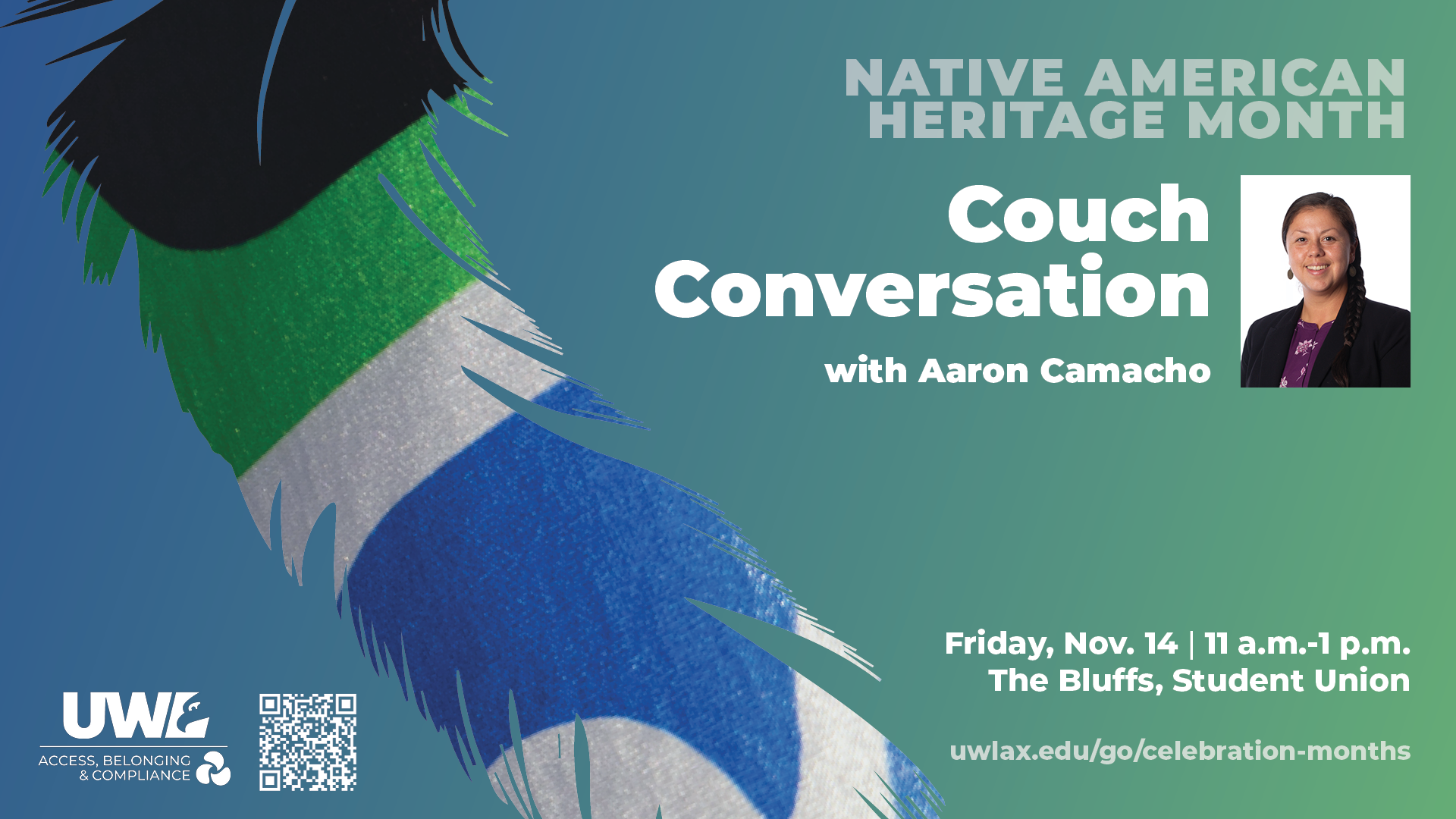Venue
UWL Student Union Bluffs
Event Details
Couch Conversation with Aaron Camacho from Business Services
UWL Celebrates is a yearlong series that brings people together through food, storytelling, and shared conversation. Hosted by the Center for Civil Dialogue & Civic Engagement, each event features a guest speaker whose experiences and work help us explore the world around us—and each other. These gatherings are about connection, reflection, and supporting a campus culture where everyone feels seen, heard, and part of the community. https://www.uwlax.edu/access-belonging-and-compliance/celebrations/
Each story shared adds a new thread to the tapestry that is UWL—woven together, we create something stronger, richer, and more connected.
Aaron Camacho is a proud citizen of the Prairie Band Potawatomi Nation as well as a descendant of the Ho-Chunk and Yaqui Nations. They serve as the Contract Administrator in UWL’s Business Services, where they lead and manage the university’s contracting processes in support of its operational and financial systems. Their work exemplifies how Indigenous professionals are thriving across all sectors of the U.S. workforce, challenging narrow stereotypes and demonstrating excellence in institutional leadership and contracting integrity.
Raised in Wisconsin, Camacho has thrived in their ancestral homeland, grounded by a deep connection to community and place. With a background in legal studies, they have been recognized for their civic and Indigenous advocacy, including founding the Turtle Island Student Organization and the Indigenous Learning Garden Initiative at Winona State University, and serving as a director with the Winona-Dakota Unity Alliance.
At UWL, Camacho is a member of the Indigenous Actions Collective and vice chair of the Academic Staff Council. Their leadership reflects a commitment to honoring Indigenous identity, fostering community connection, and creating space for healing through action.
Camacho’s presentation for Indigenous Peoples Day explored the multifaceted dimensions of the Land Back movement, examining its cultural, legal, and environmental significance within Indian Country and its relevance to UWL’s responsibility to place and the search for truth.


